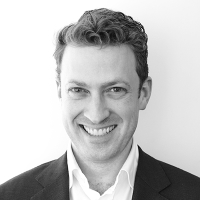The Michael Cohen scandal began as a six-figure payment to a porn star, but on Wednesday it exploded into an international, multimillion-dollar financial scandal.
President Donald Trump’s fixer took in more than $4 million in eyebrow-raising deposits to his shell company—much of it from foreign sources. That’s what a law-enforcement official told The New Yorker, saying the information Stormy Daniels’ lawyer Michael Avenatti and then news outlets have been reporting on over the last week—about the money pouring into the same shell company Cohen used to funnel $130,000 to the adult actress—came from a “suspicious activity report” filed by a bank with the Treasury Department.
The report detailed $1 million in deposits into the company that Cohen told the bank was for real-estate consulting. However, bank officers reported the deposits came from entities with “no apparent connection to real estate or apparent need to engage Cohen as a real estate consultant.”
The official told The New Yorker that two other suspicious activity reports, not previously reported on, showed another $3 million in deposits to Cohen’s company. All three reports were sent by the bank to the Treasury Department’s criminal bureau, but the official said he was motivated to share the first report because the two other ones are not in the database of the Treasury Department’s Financial Crimes Enforcement Network. Fearing a government cover-up, the official said he leaked the remaining report.
A “significant portion” of deposits to Cohen’s company were “derived from foreign entities,” bank officers wrote.
Those include a $150,000 payment from a South Korean aerospace firm, which FBI agents are said to be investigating. A translator for Korea Aerospace Industries told The Washington Post that the firm paid Cohen’s company for legal advice about U.S. accounting procedures. Cohen is a former personal injury attorney with “no known experience in government accounting,” the Post notes.
KAI is partnered with U.S.-based defense contractor Lockheed Martin in vying for a $16 million contract to provide jets to the U.S. Air Force.
Cohen also allegedly asked for foreign money from a Qatari investor during a meeting in Trump Tower during the presidential transition period.
Ahmed al-Rumaihi, who was the head of a $100 billion Qatari investment fund, told The Intercept that he asked Cohen what U.S. projects the fund should back in December 2016. But Cohen asked for an up-front fee of $1 million, al-Rumaihi said. (Al-Rumaihi said he did not pay Cohen, and Cohen denied he asked for money.)
Cohen is currently under investigation by the public corruption unit of Manhattan federal prosecutors, which investigates crimes such as bribery, embezzlement, and frauds committed against government agencies. Prosecutors and FBI agents raided Cohen’s home and office last month to seize documents, phones, and more.
Meanwhile, new information came out about Cohen that undercut his former boss’ claims he had nothing to do with Daniels or with Russia during the campaign.
After insisting for months he knew nothing about Cohen’s payoff to Daniels, Trump filed a financial disclosure form Wednesday that said he “fully reimbursed” Cohen in 2017 for expenses incurred in 2016—an apparent reference to the $130,000 Cohen’s company paid Daniels in October of that year to silence her allegation of an affair with Trump a decade earlier.
And it turns out that Cohen was still pursuing a deal to build a Trump Tower in Moscow after Trump practically clinched the Republican nomination in spring 2016—contrary to Trump’s denial that summer he had any business dealings in Russia.
Cohen had told congressional investigators he stopped pursuing the project in January 2016, but they reportedly obtained text messages between Cohen and his former business associate Felix Sater showing the effort lasted into May 2016.
Sater told Cohen that “high-level figures in Russia needed to be involved because a project of this magnitude could not be completed without Putin’s approval,” according to Yahoo News. “Around the start of that year, Cohen became frustrated because Sater had not been able to set up the necessary meetings. Cohen swore at Sater and said he would make his own high-level contacts in Russia.”
Cohen, who was a lawyer for the Trump Organization, was apparently invited to an economic forum in St. Petersburg but he declined to go, saying any travel to Russia would have to wait until after the GOP convention. Cohen told congressional investigators he never went.






